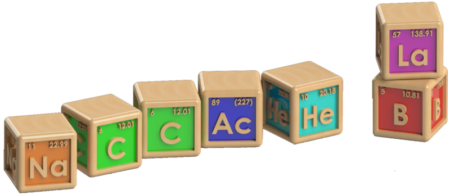Teaching Interests
Physical chemistry, inorganic chemistry and spectroscopy
Chem 498/650 – Advanced Topics in Chemistry: Advanced Nanomaterials Characterization
This course covers state-of-the-art nanomaterials physical characterization techniques including but not limited to: dynamic light scattering, transmission and scanning electronic microscopies (size and morphology), X-ray powder and electron diffraction (crystallinity and phase identification), Fourier transform/attenuated total reflectance infrared, Raman and X-ray photoelectron spectroscopies (surface chemical state and chemical composition), differential scanning calorimetry and thermogravimetric analysis (polymorphism, moisture content and weight loss), Brunauer–Emmett–Teller analysis (surface area), nuclear magnetic resonance (chemical bonding and nuclei interactions). Lectures only and laboratory demonstrations.
Chem 495 – Modern Spectroscopy
This course demonstrates how quantum theory applies to the measurement of absorption and emission spectra of atoms and molecules. The course examines rotational, vibrational, and electronic spectroscopy as well as photoelectron and related spectroscopies, Lasers and laser spectroscopy.
Chem 451/651 – Advanced Topics in Chemistry: Nanochemistry
This module-based course will cover the areas of production, characterization and applications of nanoscale structures/materials. Each of the modules will be covered by a different professor (Drs. Naccache, Capobianco, Cuccia, DeWolf and Oh) as well as some guest lecturers.
Topics include: size dependent properties, synthesis of organic and inorganic nanostructures (particles, wires, rod, tubes), self-assembled structures, chemical patterning and functional nanopatterns, nanolithography, biomaterials. Applications will include photonics, optical properties, biodetection & biosensors and nanomachines.
Chem 241 – Inorganic Chemistry I: Introduction to Periodicity and Valence Theory
The structure of the atom; the periodic table; properties of atoms, covalent bonding treatments including Lewis theory, valence shell electron pair repulsion theory of structure, valence bond and molecular orbital theory. Crystal field theory applied to the structure and properties of transition metal complexes. Bonding theories of metallic materials and semi-conductors.
